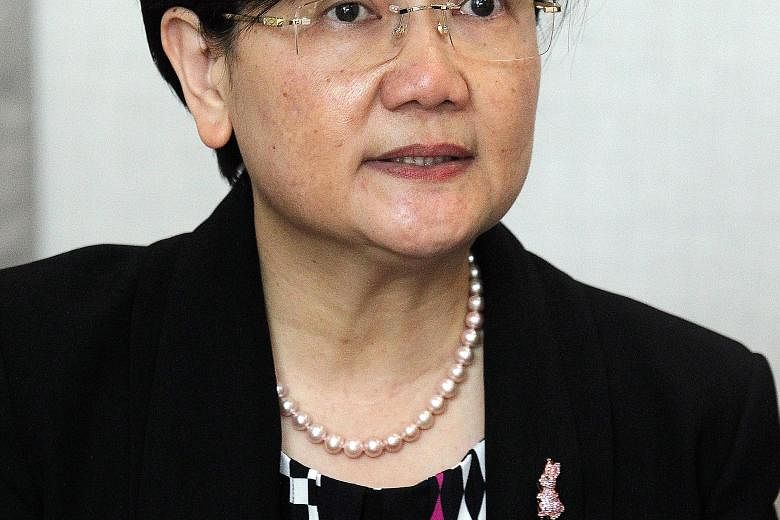The boss of internationally successful water services company Hyflux has outlined the character-testing challenges she faced as she set up the company about 25 years ago.
In a recent lecture, Ms Olivia Lum, 54, described how she sold water treatment products on behalf of multinational firms to increase Hyflux's revenue as a small start-up. She personally hawked these products in Malaysia.
Later, when Hyflux started selling its own products, she offered free services to win clients over.
Friends were also initially recruited to overcome the company's difficulty in attracting talent.
Ms Lum, Hyflux's founder and executive chairman, spoke on how Hyflux overcame challenges and grew at a public lecture at the Yale-NUS campus here. The lecture was part of the Yale-NUS President's Speaker Series featuring influential personalities and experts from around the world.
"In the beginning, when I wanted to do a service for some company, say waste analysis or consultancy, nobody wanted to talk to me," she recalled.
Initially, Hyflux operated out of a small office at Tampines Industrial Park. Faced with a lack of opportunity, she had no choice but to turn to peddling MNC water treatment products instead of providing water treatment services directly.
MNCs were willing to give the company a chance as they did not have to pay until Hyflux made a sale.
Even as an agent, however, Ms Lum struggled to make sales. Thus, she resorted to selling those water treatment products in Malaysia and Indonesia. Cutting costs was imperative under such conditions. To do so, Ms Lum took on the marketing, distribution, and administrative roles, among others.
"Instead of working 10 hours, you work 14 hours."
She journeyed to Malaysia early in the morning to sell her products. When she returned by the late afternoon, she packed products that were to be delivered and handled administrative matters.
After several years as an agent, the company transitioned to manufacturing water treatment plants .
To gain their trust, she resorted to offering potential customers free services. "We had to build the plant and test it for free... for six months. When they were happy, they bought from me."
Getting people to work for it was tough. "It was so difficult to even get one person to call... for a job, " Ms Lum said, recalling the time when she first sought to hire a clerk.
To fill the talent gap, she approached friends working as doctors, dentists, teachers, and in other professions in university when they were unhappy with their jobs to work for Hyflux temporarily .
"I said, 'You don't (have to) work for life for me, just help me with this transition, because this transition is really very important for me to become bigger. And at the same time, you can get away from your job so you feel more refreshed.'"
Now, some two decades later, Hyflux employs 2,400 staff in Singapore and other locations around the world, including South-east Asia, China and the Middle East. It notched up a net profit of $57.5 million in the 2014 financial year and has a market capitalisation of around $570 million.
The latest news is that Hyflux and its partner Mitsubishi Heavy Industries has been chosen by the Government to build a new waste-to-energy plant in Tuas valued at about $750 million.
CORRECTION: An earlier version of this story referred Hyflux's services as "waste management" services though the company is a "waste water treatment". We are sorry for the error.

